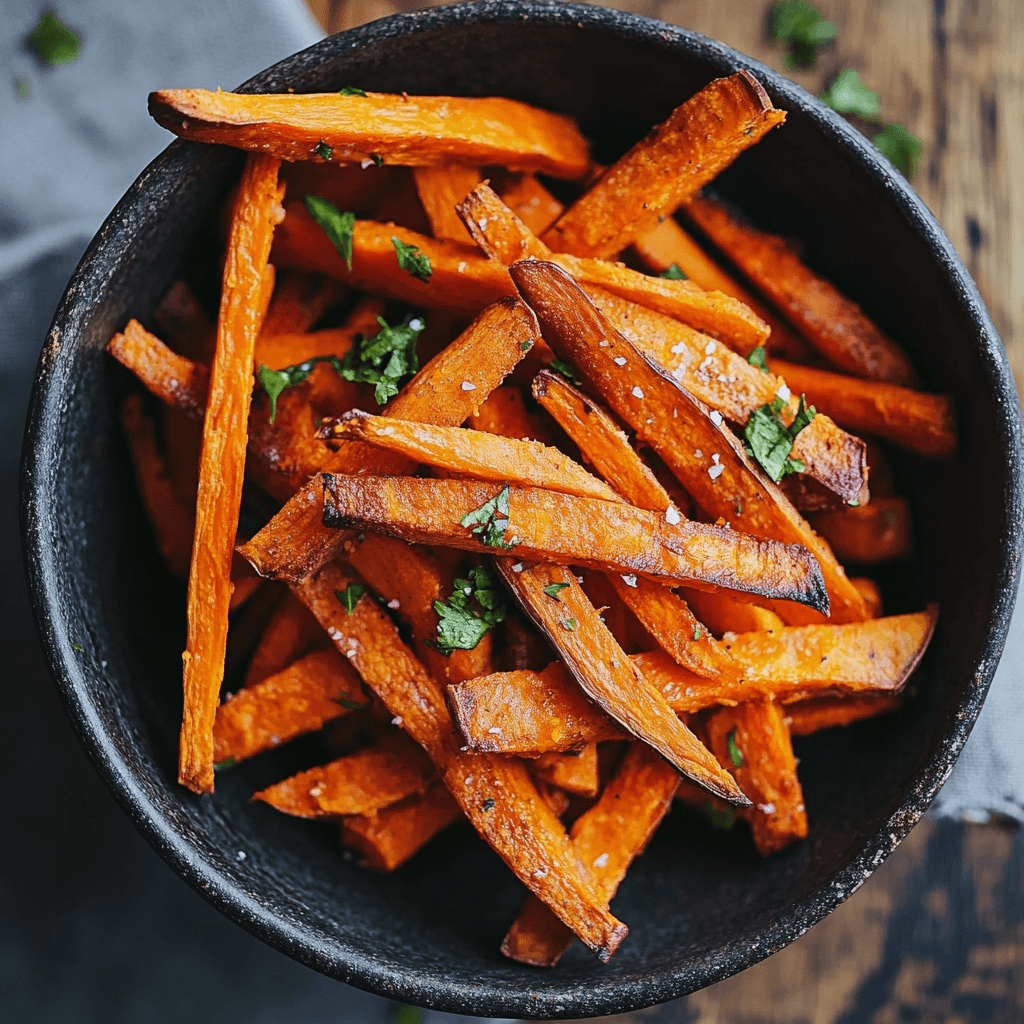Sweet potatoes offer numerous benefits and considerations for a balanced diet. They are rich in essential nutrients like vitamin A (beta-carotene), which supports vision, immunity, and skin health. Sweet potatoes also provide vitamin C, B6, potassium, and manganese, promoting overall wellness. However, it’s important to consider their potential effects on blood sugar levels and digestive comfort. Understanding the benefits and considerations of sweet potatoes can help you include them effectively in your meals.
Table of Contents
High in Fiber Content
Sweet potatoes are a nutritious and versatile food, but there are certain situations where consuming them might not be ideal. Understanding these cases can help you make better dietary choices.
Potential Allergies and Sensitivities
Some people may experience allergic reactions to sweet potatoes. Symptoms could include itching, swelling, or digestive discomfort. It’s essential to consult a doctor if you suspect an allergy.
Digestive Concerns
Sweet potatoes are high in fiber, which can sometimes lead to bloating or discomfort, especially in individuals with sensitive digestive systems. Cooking methods like boiling can help reduce these effects.
Managing Resources and Spoilage
Improperly stored sweet potatoes can spoil quickly, leading to waste. For practical tips, read more about how to keep sweet potatoes fresh to extend their shelf life effectively.
Impact on Blood Sugar Levels
While sweet potatoes are nutritious, their natural sugar content can impact blood sugar levels. This is particularly relevant for individuals with diabetes or those following low-carb diets.
Sweet Potato Conditions to Watch For
If you notice black spots or spoilage, it’s a clear sign they should not be consumed. Learn more about identifying and avoiding black spots on sweet potatoes to ensure food safety.
When Sweet Potatoes May Not Be Suitable
Allergic Reactions
Although rare, some individuals may experience allergic reactions to sweet potatoes. Symptoms of an allergy can include itching, swelling, hives, or gastrointestinal discomfort after consumption. In severe cases, an allergic reaction could lead to anaphylaxis, a potentially life-threatening condition. People with a known sensitivity to sweet potatoes or related foods should consult a healthcare professional before including them in their diet.
Digestive Issues
For some individuals, consuming sweet potatoes may lead to digestive discomfort, such as bloating, gas, or diarrhea. This is often due to the high fiber content or natural sugars in sweet potatoes, which can be challenging for sensitive digestive systems. Cooking methods and portion sizes can also influence the likelihood of experiencing such issues. Those with existing gastrointestinal conditions like irritable bowel syndrome (IBS) should monitor their response to sweet potatoes and adjust intake accordingly.
Blood Sugar Concerns
While sweet potatoes have a relatively low glycemic index compared to other starchy foods, their natural sugar content can still impact blood sugar levels, particularly when consumed in large quantities. This may be a concern for individuals with diabetes or those monitoring their carbohydrate intake. To minimize blood sugar spikes, it’s advisable to pair sweet potatoes with protein, healthy fats, or other low-glycemic foods to balance the overall meal.

Conditions When You Should Avoid Sweet Potatoes
If You Have Kidney Stones
Individuals prone to kidney stones, particularly calcium oxalate stones, may need to limit or avoid sweet potatoes. Sweet potatoes are relatively high in oxalates, natural compounds that can bind with calcium to form crystals. Excessive oxalate consumption can exacerbate the risk of developing kidney stones in susceptible individuals. Consulting with a healthcare provider or dietitian is recommended for personalized dietary guidance.
How to Maximize the Benefits of Sweet Potatoes in Your Diet
Certain diet plans, such as low-carb or ketogenic diets, often consider the benefits and considerations of sweet potatoes due to their carbohydrate content. Sweet potatoes are a starchy vegetable that can contribute a significant amount of carbs, potentially interfering with the goals of these diets. Additionally, those following strict elimination diets or managing specific health conditions, like candida overgrowth or certain autoimmune protocols, may need to evaluate the benefits and considerations of sweet potatoes carefully.
If you are trying to manage weight, sweet potatoes might play a role in certain plans. Learn more about how they can affect your goals in sweet potatoes and weight management.
Always tailor dietary choices to align with your specific health plan or objectives. For proper handling and storage, consider reading how to keep sweet potatoes fresh to make the most of your sweet potato supply.
Proper Storage of Sweet Potatoes
Signs of Spoilage
Sweet potatoes, when not stored properly, can spoil and become unsafe to consume. Common signs of spoilage include:
- Soft or mushy texture: A healthy sweet potato is firm. If it becomes soft, it is likely spoiled.
- Discoloration or dark spots: Black or brown spots on the surface can indicate decay.
- Unpleasant odor: A sour or rotten smell is a clear sign of spoilage.
- Sprouting: While sprouting isn’t always harmful, it indicates that the sweet potato is past its prime. If the sprouts are small, they can be removed, but prolonged sprouting may reduce nutritional quality.
Storing in Ideal Conditions
To keep sweet potatoes fresh and extend their shelf life, it’s important to store them in the right conditions:
- Temperature: Store sweet potatoes in a cool, dry, and well-ventilated area, ideally at temperatures between 55°F and 60°F (13°C to 16°C). Avoid refrigeration, as this can cause the flesh to harden and affect taste.
- Humidity: High humidity can cause sweet potatoes to rot, while very dry conditions can lead to shriveling. Ensure moderate humidity levels in the storage area.
- Avoid sunlight: Direct sunlight or bright light can lead to sprouting and spoilage. Store sweet potatoes in a dark place, such as a pantry or a paper bag.
- Separate from other produce: Sweet potatoes release ethylene gas, which can accelerate ripening and spoilage in other fruits and vegetables. Store them separately to maintain freshness.
Cooking Methods to Reduce Adverse Effects
Boiling vs. Baking
The method of cooking sweet potatoes can significantly influence their nutritional profile and how they affect your body:
- Boiling: Boiling sweet potatoes can help reduce their glycemic index, making them a better choice for individuals managing blood sugar levels. It also minimizes the loss of certain water-soluble vitamins, such as vitamin C, compared to baking. However, some minerals and nutrients may leach into the cooking water, so it’s important to avoid overcooking.
- Baking: Baking sweet potatoes enhances their natural sweetness and maintains most of their nutrients, such as fiber and beta-carotene. However, it can result in a higher glycemic index compared to boiling, potentially leading to quicker spikes in blood sugar. For those concerned about blood sugar, baking may be better suited for occasional consumption rather than regular meals.
Adding Neutralizing Ingredients
Incorporating certain ingredients while cooking sweet potatoes can help balance their effects, making it easier to enjoy the benefits and considerations of sweet potatoes:
- Pair with healthy fats: Adding small amounts of olive oil, avocado, or nuts enhances the absorption of fat-soluble vitamins like vitamin A. This emphasizes the benefits and considerations of sweet potatoes for a well-rounded diet.
- Combine with proteins: Including lean meat, beans, or tofu slows down digestion and stabilizes blood sugar, a key aspect of the benefits and considerations of sweet potatoes.
- Use spices: Adding cinnamon or turmeric boosts flavor, offers anti-inflammatory benefits, and helps with blood sugar regulation. These enhancements showcase the benefits and considerations of sweet potatoes.
- Acidic ingredients: A splash of lemon juice or vinegar improves taste and reduces the glycemic impact of a meal, aligning with the benefits and considerations of sweet potatoes.
FAQs About Sweet Potatoes
Are Sweet Potatoes Safe for Everyone?
Sweet potatoes are generally safe and nutritious for most people, but there are exceptions. Individuals with allergies to sweet potatoes or related plants should avoid them. Those with kidney issues or prone to kidney stones may need to limit their intake due to the high oxalate content in sweet potatoes. Additionally, people with diabetes or those on low-carb diets should consume them in moderation, as their natural sugars and carbohydrates can impact blood sugar levels. Consulting a healthcare provider or dietitian can help determine if sweet potatoes are suitable for individual dietary needs.
Can Sweet Potatoes Cause Bloating?
Yes, sweet potatoes can cause bloating in some individuals, especially when eaten in large amounts. Their high fiber content and natural sugars, like raffinose, can be hard for some digestive systems to break down. Boiling them can make them easier to digest and reduce these effects. For those prone to bloating, starting with smaller portions and pairing them with easily digestible foods may help.
Conclusion
Sweet potatoes are highly nutritious and versatile, offering many health benefits due to their rich content of vitamins, minerals, fiber, and antioxidants. They suit various dietary needs and can be prepared in numerous ways, such as boiling, baking, or adding them to sweet and savory dishes. However, potential adverse effects like allergies, digestive discomfort, or blood sugar impact should be considered, especially for those with specific health conditions.
Proper storage and careful cooking can maximize the benefits of sweet potatoes and reduce drawbacks. For more tips on storing and preparing sweet potatoes, visit this guide on sweet potato care and cooking. By understanding their nutrition and tailoring preparation, sweet potatoes can be a delicious and valuable part of a balanced diet.


